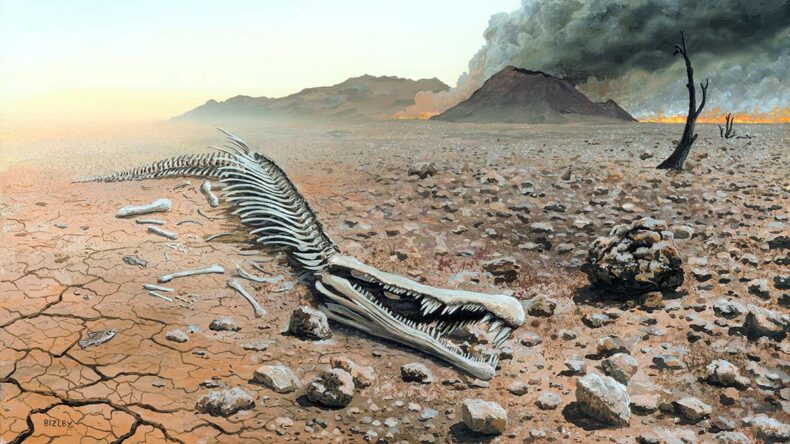The environmental crisis is already a burning issue in the whole world. Rapid industrialization is continuing to deteriorate the Earth’s condition. A recent study claims that the Earth is witnessing the sixth mass extinction event as 150,000 to 260,000 species have already gone extinct in the last 500 years. The research was led by the University of Hawaii, where the research blames human activities for this active extinction of the vast number of species from the planet. However, the study also claims that the Earth has continuously lost its species from the sixteenth century.
- The study claims that the sixth mass extinction may be sooner than thought.
- Heavy human activity leads to the rapid sixth mass extinction event.
In this peer-reviewed study published in Biological Reviews, the researchers have countered the views presented by Red List by IUCN, which stands for International Union for Conservation of Nature. Robert Cowie is the head of the research, and he claims that the Red List is biased. He claims that the list doesn’t mention most invertebrates as it comprises a dramatic loss in most biodiversity on Earth.
Not only that, but the study also claims that the island species have suffered significant rates than continental ones, and even plants have faced biases as invertebrates.
The Holocene extinction and Human activity
There are many different names for sixth mass extinction, also known as The Holocene extinction or the Anthropocene extinction. It is an ever-growing extinction event of species mainly because of human activity. The end also includes the disappearance of large land animals known as megafauna. Due to the adverse effect on biodiversity, natural habitats such as coral reefs, rainforests, and other areas are in grave peril. It is also claimed that many of these areas are thought to be undocumented.
In ecological terms, humanity is an unprecedented “global super predator” that keeps preying on the adults of other predators, resulting in worldwide effects on food webs. Thus, the Holocene extinction is mainly related to human activity such as heavy meat consumption, deforestation, overfishing, ocean acidification, and wetlands destruction. Also, the decline of amphibian populations is one of the broader examples of global biodiversity loss.
Another cause is the human population size and growth and per-capita consumption growth, which also adds up to the causes of extinction.
Deforestation, pollution, and the emergence of capitalism are among others.
Elon Musk’s take on Sixth Mass Extinction Event
He argued with Robert Cowie’s statement by tweeting, “There is a hundred per cent chance of all species extinction due to expansion of the sun unless humanity makes life multi-planetary.
Once again, Musk’s mission to colonize mars came to the forefront as he has made clear his ambitions through ventures of his company SpaceX.
At the same time, Avi Loeb, an Israeli-American astronomer of Harvard University, claims that a possible light vessel could one day be used as “Noah’s ark” to save life on Earth. He believes that humankind has already “spent a considerable amount of money into destroying the planet.”
Scientists are repeatedly claiming that the ongoing sixth mass extinction may be the most severe environmental threat to the continuation of civilization because it is irreversible. And with the end of every species, Earth’s capability to maintain an ecosystem also reduces to a greater degree.
Therefore, the predictions are that extinctions will worsen in the coming decades as the loss of such a vast number of species will bring a massive irreversible change in the entire ecosystem. Already, 2021 was the hottest year, according to reports which is again the direct effect of climate change.
It is indeed a wake-up call to humanity because if not now, when?
Published by- Aashay Bhujbal
Edited by- Subbuthai Padma













